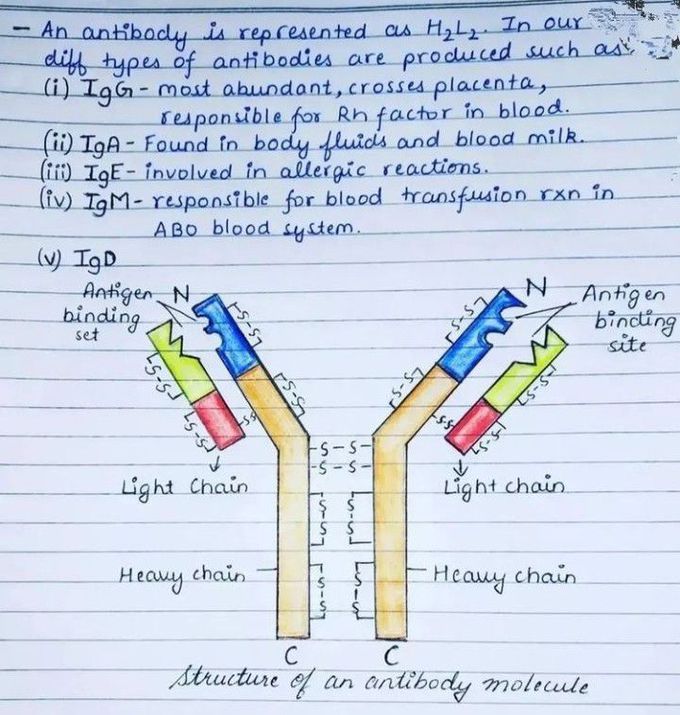

Iqraalmost 4 years ago

Antibodies
An antibody, also known as an immunoglobulin, is a large, Y-shaped protein used by the immune system to identify and neutralize foreign objects such as pathogenic bacteria and viruses. The antibody recognizes a unique molecule of the pathogen, called an antigen. Antibodies are produced by specialized white blood cells called B lymphocytes (or B cells). When an antigen binds to the B-cell surface, it stimulates the B cell to divide and mature into a group of identical cells called a clone.
Other commentsSign in to post comments. You don't have an account? Sign up now!

